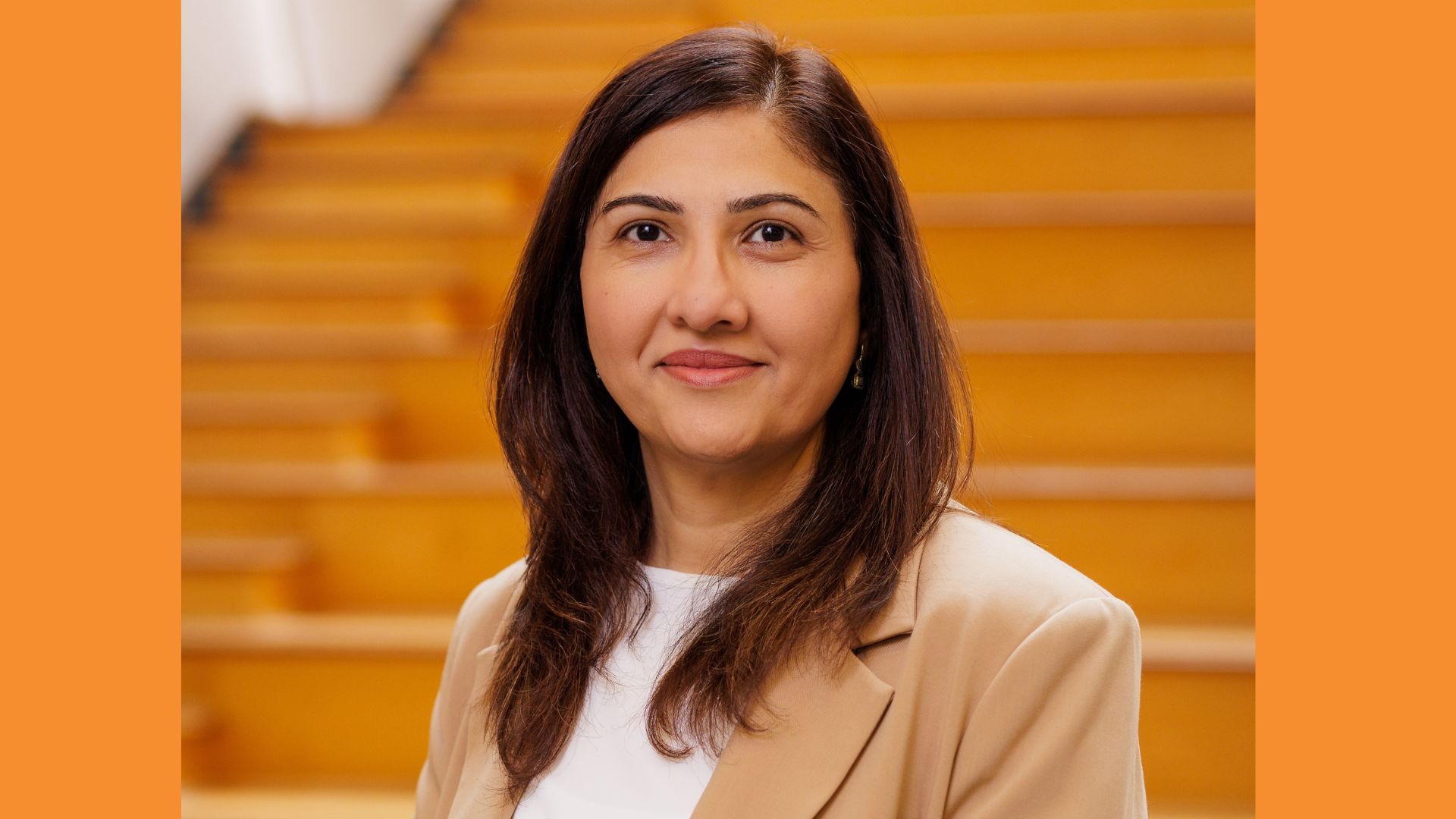Empowering women through innovative numeracy and literacy tools
Sasha Roeder Mah - 4 December 2023

Salima Meherali
A team of researchers at the University of Alberta has designed an innovative set of numeracy tools to empower women living in the most remote regions of northern Pakistan. The community-based, participatory project, which was piloted earlier this year, is headed up by Salima Meherali, an assistant professor in the Faculty of Nursing, in partnership with the Aga Khan Rural Support Program in Pakistan and My Oral Village in Canada.
Working closely with about 20 pre-established women-run community-based savings groups in the mountainous area, where the majority of women are unschooled, Meherali’s Calendars and Cash program was based directly on the stated needs of the women themselves.
Having grown up in Pakistan, Meherali completed both a bachelor’s and a master’s degree in nursing at Aga Khan University in Karachi. It was there, during community-based clinical training, that she first fully realized the conditions in which many women and children were living in less-developed parts of the country. “I realized how blessed and privileged I was, seeing communities where women were not literate and could not work, so they had to depend on their husbands for everything,” she recalls. “Also, many of those women did not know about reproductive health and had little ability to make decisions about things like contraception.”
As a nurse-in-training, Meherali helped women understand a broad range of health issues, from the importance of hygiene to how to manage their own reproductive health. When she moved to the U of A to pursue her PhD, Meherali wanted to continue the work she had begun in her home country, to support a move toward greater independence and equality for the kinds of women she had gotten to know.
“These women are really smart,” she says. “Just because they have not gone to school doesn’t mean they don’t have the capacity to learn. They just need support.”
Meherali started by connecting with community-based savings groups to find out how they function and how they could be improved upon. These groups, created to support women’s financial independence, consist of around 20 women each, with two or three women per group who have the literacy required to fill out loan forms and other saving group documents on behalf of the other members. Meherali wanted to find a way to empower all of the women to manage their own finances.
Thus was born a collaboration with My Oral Village, which develops financial numeracy tools for people who cannot read numbers. They created saving passbooks using localized icons and images of Pakistani paper money alongside their written numeric equivalent. Seeing how rapidly the passbooks were adopted, the team also introduced a cash-calculator Android app. Whereas typical online calculators are numbers-based, this app — which runs offline once it is uploaded, an important feature due to the remote regions in which it would be used — uses images of money alongside numbers, converting one to the other. Researchers uploaded the app onto about 100 Android tablets, gave two or three to each saving group and taught them how to use it.
Lastly, again in collaboration with the community based savings groups, Meherali and her team designed the Maternal and Child Health Calendar. The handy booklet houses information for mothers about antenatal/postnatal care, early-childhood growth and development targets, immunization reminders, and more — all delivered via images and symbols for women who cannot read or write.
While a few delays because of significant religious events in the Islamic calendar meant that this pilot project had to operate on an abbreviated timeline of only three months, Meherali and her team received such positive feedback from the women that they have applied for funding to extend the project. Many women who were previously discouraged from helping out in their husbands’ shops because of their lack of knowledge around numbers and money, for example, have become significant contributors to the family business thanks to their newfound ability to use the calculator app.
The feedback also has helped the team understand where improvements can be made to the tools. “Currently the tools are in black-and-white and we’d like to make them in colour,” says Meherali. “We also are working to add text next to the images in the calendar so the women can begin to understand some words and build literacy.”
In the meantime, while the U of A team has returned to Edmonton, the project continues to grow and take on new life back in Pakistan. Local partner Aga Khan Rural Support Program is rolling the intervention out among all the community-based saving groups it is currently working with throughout the regions of Gilgit Baltistan and Chitral. And Meherali believes it won’t be long before it has been shared much more broadly throughout the country.
With the world struggling to meet the UN’s Sustainable Development Goals — such as a marked decreased in morbidity and mortality in low and middle income countries — what do projects like this mean for the future of girls and women in those areas? “In many of these countries, they are struggling with resource constraints,” says Meherali, “and we are not close to reaching those goals, nor are we close to gender equality. This is one step toward improving the status of women and children. Helping them empower themselves can help them understand how to improve their own lives and the lives of their children, especially girls, for generations to come.”